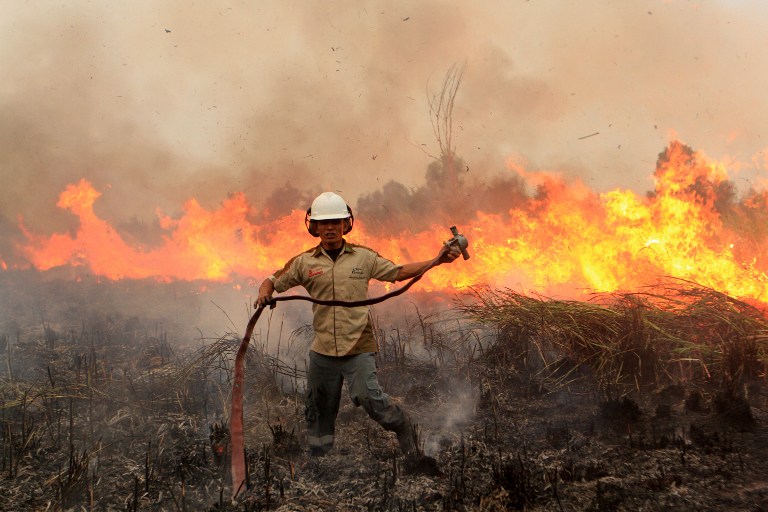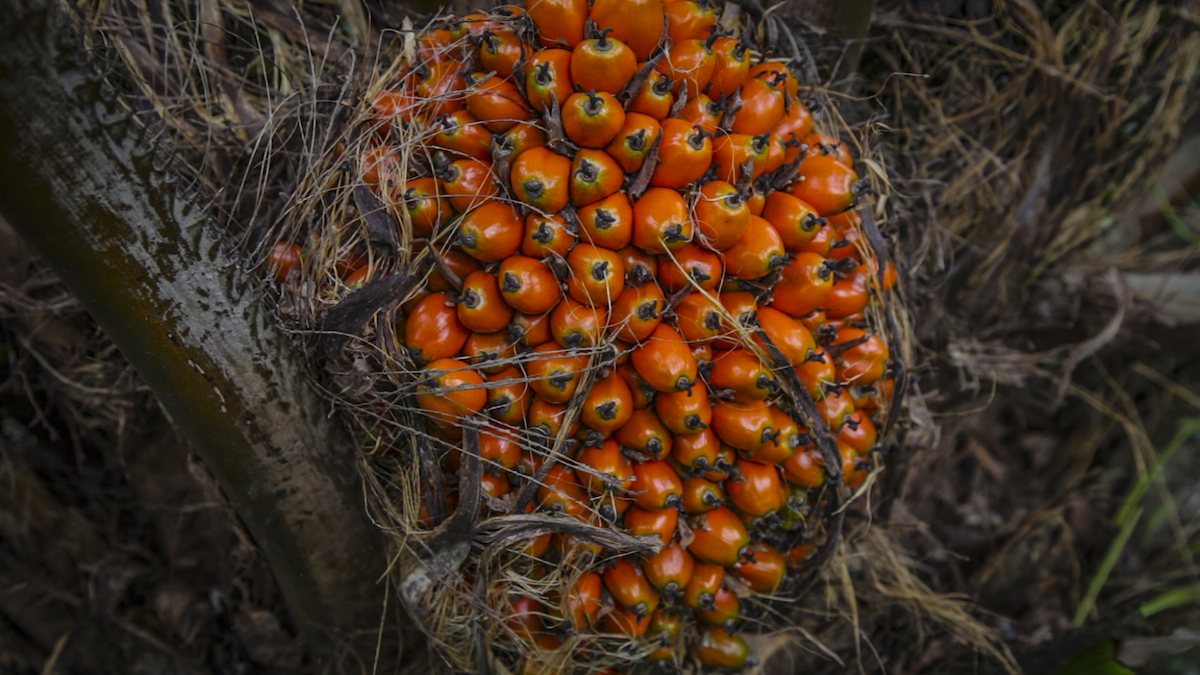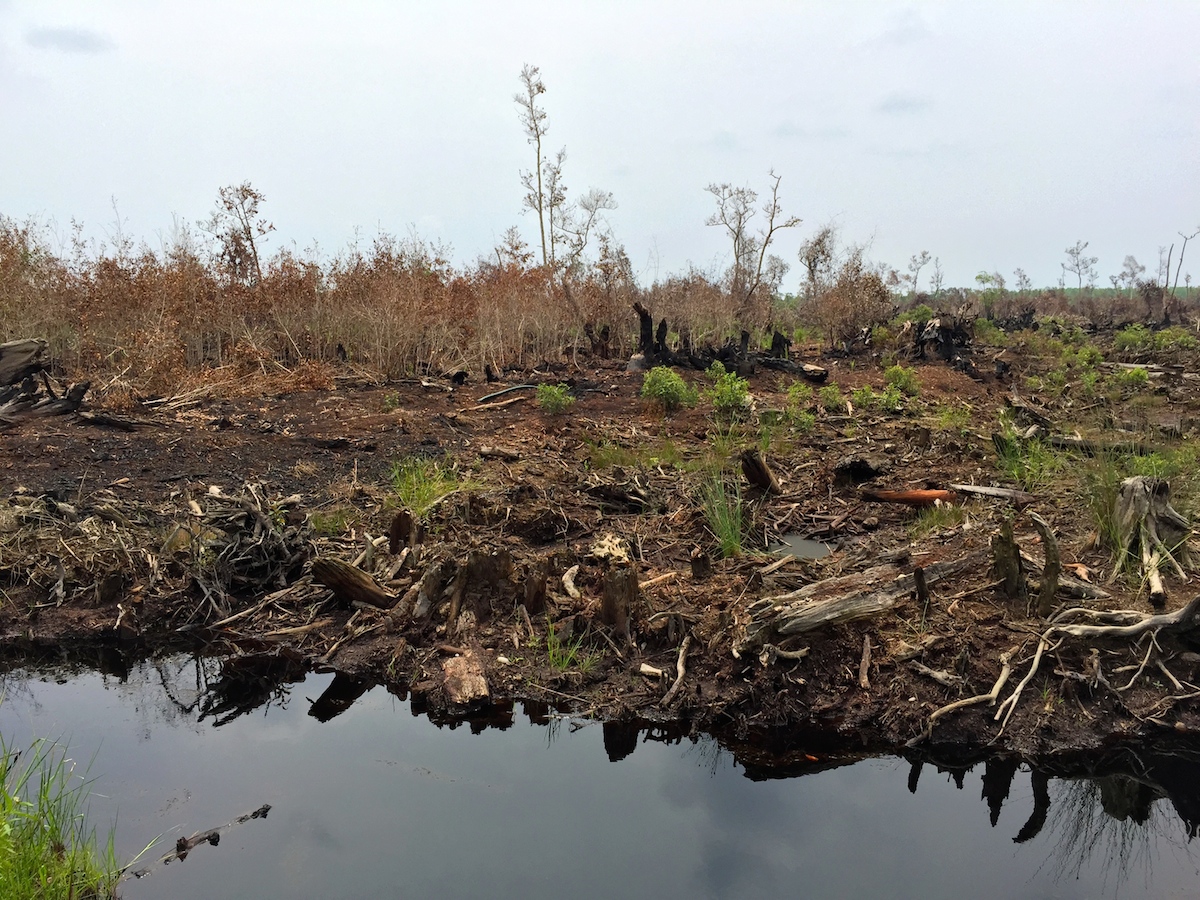Deforestation fires for palm oil production cause immeasurable environmental, social, political, and economic damage across Southeast Asia.
In late 2014, The Coconuts TV team traveled to Palembang, South Sumatra, Indonesia – an area ravaged by these fires – to interview local people and survey the situation on the ground.
Watch the Coconuts TV feature documentary “Sumatra Burning: The Heart of Palm Oil” here and browse our multimedia feature and infographic below.
Each year during the dry season, plumes of smoke billow from the burning forests and peatlands of Indonesia, covering the country and its neighbors, Singapore and Malaysia, in a thick, choking layer of smog-like haze. The effects of these tropical forests fires are devastating on a regional level – causing deaths and respiratory problems, displacing local people and creating record levels of pollution. But they are even more monumental when viewed on a global level.
Deforestation is a major contributor to climate change, adding more carbon pollution to the atmosphere than all the world’s cars, trucks, ships, trains and airplanes combined each year. It’s also pushing many animal species to the brink of extinction, including the Sumatran rhinoceros, Sumatran tiger, Sumatran elephant, and the orangutan due to the destruction of their habitats.
Indonesia has become the global leader in deforestation due to the world’s thirst for palm oil. Palm oil is the most widely used vegetable oil on the planet. It can be found in over half of all packaged products at the supermarket, including everything from cooking oil to lipstick. Every hour, an area the size of 300 football fields of rainforest is cleared to make way for palm oil production, according to the World Wildlife Fund. It is predicted that global demand for palm oil will double by 2020, making the issue of sustainable palm oil production all the more important.
 An Indonesian firefighter combats the fire in South Sumatra in September, 2015. Photo: Abdul Qodir / AFP
An Indonesian firefighter combats the fire in South Sumatra in September, 2015. Photo: Abdul Qodir / AFP
 These palm oil bushels are harvested and pressed to create palm oil. Photo: Alexander Hotz / Coconuts Media
These palm oil bushels are harvested and pressed to create palm oil. Photo: Alexander Hotz / Coconuts Media
In 2004, the Roundtable on Sustainable Palm Oil (RSPO) was established to promote the use of certified sustainable palm oil. Bringing together palm oil producers, consumer goods manufacturers and environmental organizations, the RSPO aimed to develop and implement a global standard for sustainable palm oil. But progress has been slow, and many members have been criticized for violating RSPO standards. In 2013, a number of the world’s major palm oil producers and consumer goods companies – including Unilever, Cargill and Nestle – strengthened their commitments to cease producing, trading or buying palm oil linked to deforestation and exploitative practices. These pledges were part of a larger commitment by governments to half deforestation by 2020. If these commitments are achieved, global warming pollution could be reduced by approximately the same amount as taking a billion cars off the road a year.
 The result of a deforestation fire for a palm oil plantation. Notice the black canal. Photo: Alexander Hotz / Coconuts Media
The result of a deforestation fire for a palm oil plantation. Notice the black canal. Photo: Alexander Hotz / Coconuts Media
However, despite these pledges, corruption and a lack of law enforcement have enabled unregulated palm oil plantation expansion to continue in Indonesia, according to a recent report from the Environmental Investigation Agency (EIA). While the zero deforestation commitments of major palm oil companies are a step in the right direction, the EIA report raises significant concerns about small and medium-sized firms who are continuing to illegally clear forests, often under the radar of international environmental groups. Moreover, due to the palm oil sector’s opaque supply chains, even major companies committed to sustainable palm oil practices could unwittingly source palm oil from small and medium-sized companies that are illicitly slashing and burning the country’s forests.
 This Sumatran mother said a nearby fire had caused her baby breathing problems and red, irritated skin. Photo: Alexander Hotz / Coconuts Media
This Sumatran mother said a nearby fire had caused her baby breathing problems and red, irritated skin. Photo: Alexander Hotz / Coconuts Media
And despite being an important part of the country’s GDP, palm oil revenue doesn’t trickle down to lower-income Indonesians in a substantive way. The industry is often exploitative and damaging to the social fabric of Indonesia, with local people forced from their land to make way for plantations. Once a plantation is up and running, they often have no choice but to work harvesting and producing palm oil for minimal wages.

 Above: Palm kernel collectors at a plantation in Sumatra. Photos: Alexander Hotz / Coconuts Media
Above: Palm kernel collectors at a plantation in Sumatra. Photos: Alexander Hotz / Coconuts Media
As long as these issues persist, Indonesia’s palm oil production will continue to take a toll on the planet, posing a threat to the millions of animal species and local people that rely on Indonesia’s diverse tropical rainforests for their livelihoods. Smoke from the fires will continue to harm human health, killing an average of 110,000 people each year and causing respiratory problems for tens of thousands more. And each year, a smog-like haze will blanket Indonesia, Singapore and Malaysia, leading to the closing of businesses and schools, canceling airline flights, damaging the countries’ economies and causing irreparable harm to the environment.
Browse our infographic on the impact of deforestation fires for palm oil.

Story: Katrina Kaufman
Video producers: Byron Perry, Katrina Kaufman, Alexander Hotz, and William Mitchell
Subscribe to Coconuts TV for weekly documentaries from Asia.





Reader Interactions